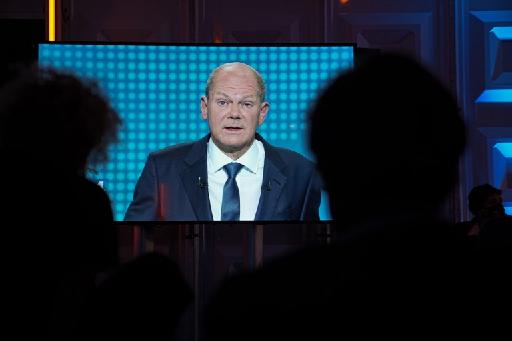After weeks of intense negotiations, Olaf Scholz (SPD), the soon-to-be-chancellor of Germany and his coalition partners presented their Governing Agreement last week. The centre-left Social Democrats (SPD), the Greens (Bündnis 90/Die Grüne) and the liberal Free Democrats (FDP) will jointly form the next government to replace the current “Grand Coalition” led by Angela Merkel (CDU). Merkel is set to retire after a sixteen-year tenure as chancellor.
This so-called “traffic light coalition” – the colours of the three parties are red, yellow and green – marks the first time the three parties form a government together on the federal level. The three coalition partners all increased their vote share in the September elections, while the CDU/CSU, the dominating force of German politics for much of its post-war history, plunged to its worst ever result.
What are the coalition’s plans for Europe?
While much of the focus during the coalition talks (and in the agreement itself) has been on climate and fiscal policy issues, the parties nonetheless also outlined their new European and foreign policy.
At the presentation of the agreement in Berlin, Olaf Scholz emphasised Germany’s integration into the EU, describing “a sovereign Europe as key for German foreign policy”. Annalena Baerbock, the co-leader of the Greens, who is expected to become Germany’s next foreign secretary, further called for a “European response” to the climate crisis.
Whilst strongly reaffirming Germany’s commitment to the EU and its values, the agreement remains rather shy regarding specific goals for the EU. A few notably did however stick out:
· Strengthening the European Parliament by introducing transnational lists for the next elections and returning to the Spitzenkandidat – system
· Reform of the Council of the EU to more majority voting requirements
· Strengthening the European External Action Service (EEAS) and transforming the position of the High Representative of the EU into a real “European foreign secretary”
· Accelerating the accession of new states, especially Albania and North Macedonia, to the Union
· Forming a “coalition of the willing” for a more open European migration policy
These plans – and reforms of the EU more generally – face steep hurdles though. The Member States and their leaders currently have vastly different perspectives on the EU and its role.
Some commentators had further hoped that the more left-leaning Scholz would be more open to transforming the EU into a fiscal union. This now appears rather unlikely, as the pro-business FDP managed to secure concessions from Scholz to maintain Germany’s demands for tight fiscal requirements in the Union.
Why does the new German government matter for Europe?
Germany is not only the largest Member State, but also historically an integration-friendly Member State, and therefore exerts lots of influence over the direction of the EU. Not without reason has Angela Merkel been called “the de facto leader of the EU” by Forbes Magazine. The chancellors of Germany have long served as the pacemakers of the Union, from the great Europhile Helmut Kohl to the notoriously cautious Merkel. The European policy Scholz establishes will therefore likely not only shape his chancellorship, but also the future of the Union as a whole.
What are the next steps?
The coalition agreement still needs to be formally approved by the party conferences of the three partners, but this is expected to occur without great opposition.
The parties currently plan to elect Scholz as chancellor in the first two weeks of December, which would allow Scholz and his cabinet to be sworn in shortly afterwards.
Scholz will not have to wait long for his debut on the European stage: The European Council will meet on the 16th and 17th of December – a welcome opportunity for Scholz to introduce himself to the European political landscape.


